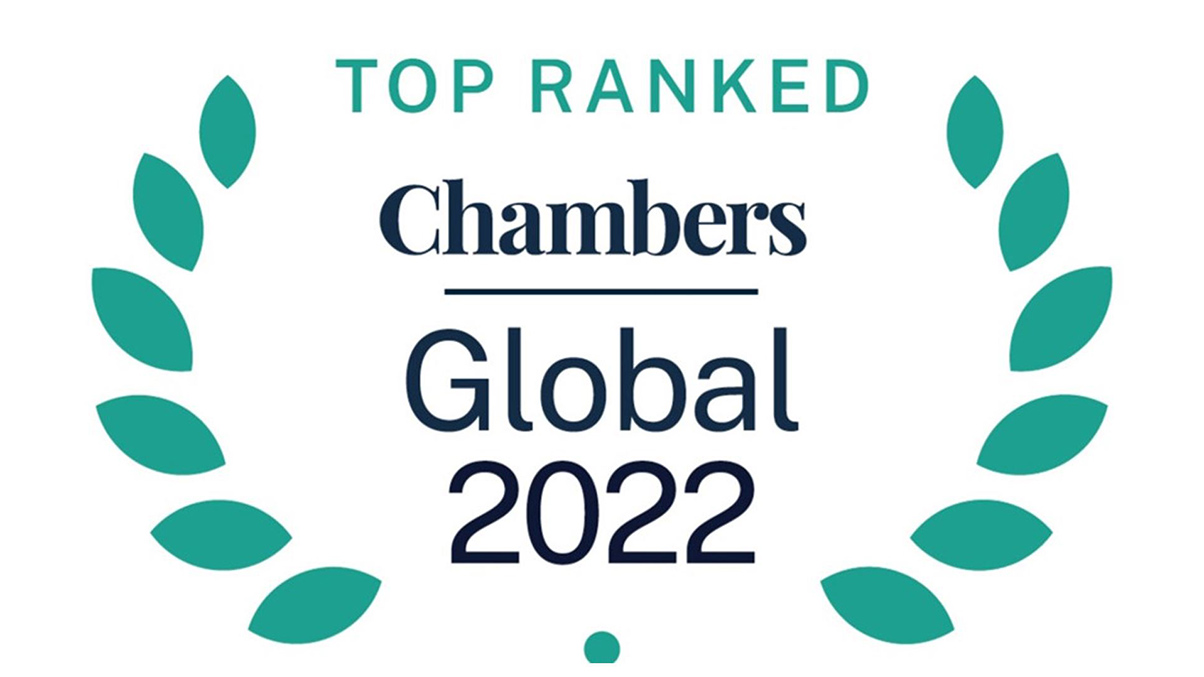Head of Competition Litigation Kate Pollock and Senior Associate Leah Keen have once more contributed to the latest International Comparative Legal Guides (ICLG) publication on competition litigation, now in its 15th edition in 2023.
As part of their updated chapter, a claimant’s guide to recovering cartel damages in England, Kate and Leah explain the impact of recent developments in the field including the effects of Brexit and competition law reform, as well as case management of cartel damages claims.
The UK’s withdrawal from the EU
The UK left the EU at 11pm (UK time) on 31 January 2020. However, EU law and relevant Commission infringement decisions continue to be relevant for many cartel damages claims in England, as explained further below.
Legal basis of competition claims
Where the cartel conduct in a damages claim took place before 31 December 2020 (being the end of the transition period for the UK’s withdrawal from the EU), the cause of action is likely to be based on a breach of statutory duty under Article 101 of the Treaty on the Functioning of the European Union (“TFEU”). Article 101 TFEU prohibits anticompetitive agreements that have as their object or effect the prevention or distortion of competition and that affect trade between Member States of the EU. Where the anticompetitive conduct took place after the end of the transition period, claims based on a breach of Article 101 TFEU may still be brought in the English courts (provided jurisdiction can be established, as outlined above), albeit they are pleaded as a breach of foreign law. The English courts are well used to applying foreign law to some or all elements of a claim.
Where any claim is limited to conduct affecting trade and competition within the UK, the cause of action is based on a breach of UK competition law (Chapter I of the Competition Act 1998), which mirrors EU competition law but is narrower in territorial scope. These UK competition law provisions are unaffected by the UK’s withdrawal from the EU.
Follow-on/stand-alone claims – Where the Commission has “continued competence” in relation to proceedings it initiated prior to the end of the transition period, Commission decisions adopted after that date will remain binding on the English courts. It therefore remains possible to issue claims in the English courts which follow on from a decision of the Commission where the investigation was initiated before the end of the transition period. This means that follow-on proceedings based on Commission decisions will continue to be brought in the UK for a number of years to come.
Where Commission decisions fall out of the continued competence regime, claims would be brought on a stand-alone basis (i.e. where Commission decisions are no longer binding on English courts). However, it is not clear whether the burden on a claimant will become significantly higher in practice. Even in a follow-on claim relying on a Commission decision, a claimant must establish that the cartel has caused it to suffer loss. Furthermore, the English courts may still consider a finding of infringement in a Commission decision to be highly persuasive prima facie evidence of cartel conduct. There may also be no requirement for English courts to wait for the Commission decision to be made final (i.e. the time for appeals has expired or the final appeals have been heard) before making its own determination, in contrast to the position previously where claims were usually delayed or stayed pending the final outcome.
Jurisdiction
Cartel damages claims are usually framed as a tort (breach of statutory duty arising from an infringement of competition law), which would not ordinarily fall within the scope of a standard contractual jurisdiction clause between the parties; this thus abstractly refers to all disputes arising from their contractual relationships. Therefore, the Hague Convention on Choice of Court Agreements (to which the UK acceded after its withdrawal from the EU) would not usually apply in competition claims.
The English courts will therefore apply common law rules to determine whether to take jurisdiction over a claim, based on relevant connecting factors. These include the location of defendants, connections to anchor defendants, as well as other factors such as choice of law clauses, location of relevant events, and the likely governing law of the dispute. This involves the English courts conducting a balancing exercise and using its discretion as to whether England is the most suitable jurisdiction, when cases are presented to it.
Service
Prior to the UK’s withdrawal from the EU, English proceedings could be served in the EU without the permission of the English courts via the EU Service Regulation. Claimants now have to seek the English court’s permission before serving any claim form outside the UK, which will involve satisfying the court on an ex parte application that the claim has merit and that the English court has jurisdiction.
Care is needed when making such an application to the English courts, particularly when made on an ex parte basis. In particular, litigants must be very careful to consider whether the system of law under which a case is brought has any potential limitation issues. If so, this must be presented to the English courts, or else service of proceedings may be set aside by a defendant.
Enforcement
Enforcement of an English judgment in a foreign country is governed by either any reciprocal arrangements in place between the UK and the country in question (including those based on bilateral treaties) or, if there are no reciprocal arrangements in place, the national rules in the foreign country where enforcement is sought. This is the current position in relation to enforcement of English judgments in EU Member States.
Consistency with EU law
Prior to the end of the transition period, the English courts were required to ensure that there was no inconsistency between their decisions and decisions reached by EU courts in relation to determining a corresponding issue under EU law, with very limited exceptions. There is now no such consistency obligation in respect of future EU case law after 1 January 2021, although the English courts may still have regard to it.
Competition specific EU/UK agreement
On 11 May 2021, the Commission adopted a recommendation for a decision to authorise negotiations for a cooperation agreement on competition matters between the EU and the UK. This would be separate from the EU-UK Trade and Cooperation Agreement. The envisaged competition cooperation agreement may include conditions for the exchange and use of confidential information in antitrust matters and the application of EU competition law. The EU has similar agreements with other third countries, such as the U.S., Canada and Japan.
While no further developments on the proposed cooperation agreement have been reported since the original announcement, the UK competition authority (the CMA) and the Commission nonetheless appear to be cooperating with one another to some extent. For example, in March 2022, both authorities coordinated unannounced inspections on certain vehicle manufacturers and associations in respect of possible collusion in relation to the recycling of end-of-life vehicles.
Regardless of the UK’s withdrawal from the EU, the UK remains one of the leading jurisdictions for cartel damages claims. There are features of litigation in the UK that are seen as favourable towards claimants and are unaffected by EU membership (or lack thereof). For example, the English rules on disclosure are relatively generous and are attractive to claimants in cartel litigation, where asymmetry of information between the claimants and cartelists is common. There is also a high level of expertise within the judiciary, which includes a specialist tribunal (the CAT) as well as judges in the commercial courts with extensive amounts of cartel damages claims experience. Finally, the relative speed at which litigation progresses compared to other European jurisdictions and a mature competition bar are enduring features of English cartel litigation post-Brexit.
Competition law reform and the impact on cartel damages claims
In the past year, the UK government consulted on reforming competition and consumer policy, publishing its response to the consultation in April 2022. The government had made various competition policy proposals to address its concerns about overall levels of competition being in decline and, with some businesses enjoying increased market power, the risk of rising prices and decreased output. While the focus of the consultation was on strengthening public enforcement of the competition rules by the CMA, some of the policy proposals have ramifications for cartel damages claims.
In particular, the government intends to expand the territorial scope of Chapter I of the Competition Act 1998 to address its concern that conduct taking place outside of the UK can harm competition and consumers within the UK. As it stands, the Chapter I prohibition applies to anticompetitive agreements implemented in the UK, and the CMA’s enforcement powers are limited to these kinds of agreements. Under the proposed reforms, the Chapter I prohibition would be expanded so that the CMA can act in relation to anticompetitive agreements that have or are likely to have direct, substantial and foreseeable effects in the UK (provided the other relevant criteria are also met).
This is an important development for UK competition law that reflects the globalised nature of supply chains and that the impact of cartels can be suffered across multiple jurisdictions. In particular, the intended reform has the potential to provide affected businesses and consumers with a broader legal basis for claims for breach of UK competition law. The reform would, in principle, allow cartel victims to seek compensation for cartelised goods that have been supplied indirectly to the UK (such as via an innocent third party abroad), even where the cartel itself was implemented elsewhere.
Separately, the government also considered extending its leniency regime so that whistle-blowers who reveal the existence of secret cartels not only receive immunity from fines, but also benefit from full immunity from private damages claims. One of the government’s concerns was that the potential exposure to liability for cartel damages claims might deter cartelists from revealing the existence of cartels in the first place (which would normally be done in exchange for leniency from public fines). Therefore, there is potentially a tension between public and private enforcement of competition law in the context of the leniency regime. The government considered that public enforcement ought to be prioritised in this context, including because it is often a necessary precursor to effective private enforcement.
However, the government does not currently intend to implement this proposal for the time being, recognising that the evidence in support of it is mixed and therefore such a reform may be premature. Nonetheless, this will be kept under review as part of the UK’s commitment to effective enforcement against cartel activity.
Case management in cartel damages claims
The volume of cartel damages claims proceeding in England has increased markedly in recent years, corresponding with legislative developments designed to facilitate the private enforcement of competition law. There are specific features of cartel damages claims which raise questions for their effective procedural management. For example, a single cartel may have affected many of the cartelists’ direct customers who all decide to issue claims that are independent of one another from a procedural perspective, but concern some of the same or similar facts, issues and witnesses. Furthermore, claims may also be issued in respect of the same cartel but by indirect customers who argue that the direct customers of the cartel passed on some or all of their loss downstream. Evidential overlap between these types of claims and the related, direct purchaser claims is also common.
In these circumstances, the High Court and CAT are increasingly taking a proactive approach to case management of cartel damages claims to ensure that they proceed efficiently and effectively in this jurisdiction. For example, the High Court is now often initiating the transfer of cartel damages claims issued there to the specialist CAT.
Claims relating to the same cartel are also in some cases being case-managed together, or the respective sets of claims are listed for trial in a way which takes into account the potential relevance of findings to one another’s claim. For example, the CAT has been closely case-managing the numerous claims following on from the Trucks Cartel, and has decided to hear some claims together in different “waves”. The first wave trial commenced on 3 May 2022 in proceedings brought by companies within the Royal Mail and the BT Group businesses, which involved UK claimants only. Claims involving other claims including certain non-UK claimants will be heard in subsequent waves.
Furthermore, in June 2022, the CAT published a new Practice Direction regarding proceedings issued in the CAT which are distinct but raise certain related matters; for example, pass-on of an alleged cartel overcharge in claims concerning different levels of the supply chain. The purpose of the Practice Direction is to indicate one way in which the Tribunal will seek to achieve the “effective and consistent case management” of such cases pursuant to Rule 17 of the CAT Rules 2015, which establish processes for hearing similar proceedings together and/or consolidating them.
Recovering cartel damages in England: a claimant’s guide
The full chapter from the latest ICLG guide is available to read here. The guide as a whole also features jurisdiction chapters addressing competition law in 19 countries.
Stewarts Litigate
Stewarts has launched a ground-breaking after the event (ATE) insurance facility with Arthur J. Gallagher Insurance Brokers Limited. ‘Stewarts Litigate‘ is designed to work alongside our alternative funding agreements. The facility provides our commercial disputes clients with rapid access to comprehensive ATE insurance at pre-agreed market leading rates. The facility can provide coverage of up to £4 million in three business days and up to £18 million within ten business days.
Find out more about Stewarts Litigate here.
This communication has been authorised by Arthur J Gallagher Insurance Brokers Limited for the purpose of s21 of the Financial Services and Markets Act 2000
You can find further information regarding our expertise, experience and team on our Competition Litigation page.
If you require assistance from our team, please contact us.
Subscribe – In order to receive our news straight to your inbox, subscribe here. Our newsletters are sent no more than once a month.








